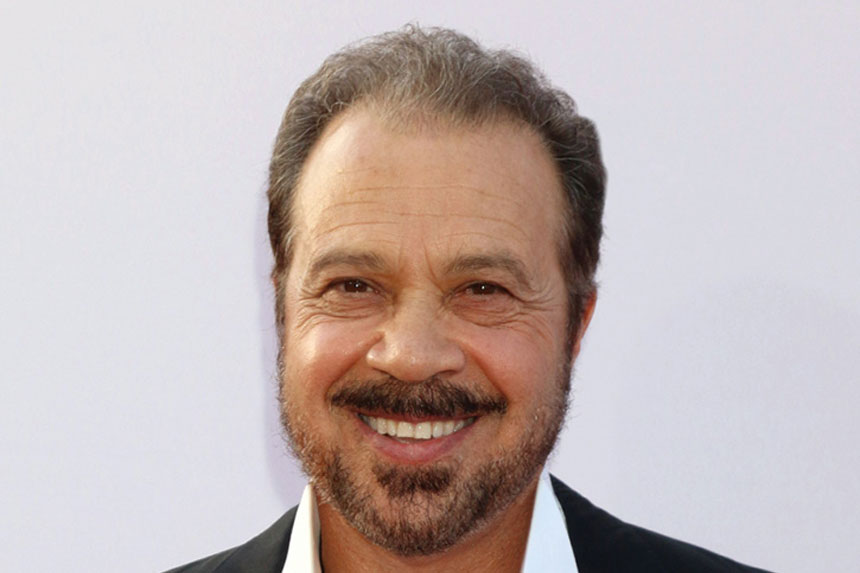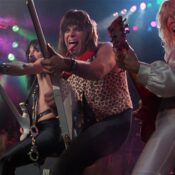Ed Zwick rose to the top in Hollywood as a multi-talented producer, writer, and director after co-creating the hugely popular and Emmy-winning TV series Thirtysomething. He went on to win an Oscar and critical acclaim for a string of epic movies, including Glory, Legends of the Fall, Shakespeare in Love, The Last Samurai, and Blood Diamond, starring a list of greats like Denzel Washington, Brad Pitt, Leonardo DiCaprio, and Tom Cruise. Now, he’s written a juicy memoir, Hits, Flops, and Other Illusions, about his 40-year career in which he may not tell all, but he tells a lot.
“I dropped a few names,” Zwick confesses. “Over the years I have worked with self-proclaimed masters of the universe, unheralded geniuses, hacks, savants, and saints.” Through it all he never lost that awe of the superstars who helped him make magic on the screen.
Jeanne Wolf: You’ve had wonderful times telling stories. You reveal that directing films can be not only glorious but also wildly stressful. After all of your experiences, are you still star struck?
Ed Zwick: Yes, I still am drawn to their bright flame. Real stars carry with them something that is magnetic, a kind of internal brilliance. They are unique in the ability to fascinate you. You see something happening behind their eyes and you just want to look closer. I cannot tell you also how many brilliant and gifted actors have made me look good, adding something to scenes that I didn’t expect. When people say, “There aren’t many stars anymore,” I say, “Maybe it’s because they’re not being given the material to show off their stardom.” In Marvel comic book movies, they’re getting paid a lot, and it’s really fun, but you don’t really see the depth of their talent.
Denzel Washington probably has the most brilliant career of any actor living. He has this very unique sense of being present and also a certain amount of “screw you” distance. Leonardo DiCaprio is a student devoting astonishing amounts of time to getting it right, like the Afrikaner accent in Blood Diamond. He’s all in and lives for making movies. And Tom Cruise in The Last Samurai? You could ask him to do a scene standing on his head, chewing gum and he’d go, “I’ll try that.” But he would have his own ideas about how that might not be the way to do it.
Brad Pitt was just getting started when I cast him in Legends of the Fall, and he had done that unforgettably sexy scene with Geena Davis in Thelma and Louise. I was editing in the same building with director Tony Scott and Warren Beatty and they came in to look at some scenes with Brad. They knew, just like I did, that he wasn’t going to be a secret any longer. Brad and I had some chilly disagreements, but it all worked out.
JW: Brad Pitt wasn’t the only actor with whom you had your disagreements. In the book, you don’t shy away from discussing your less-than-glamorous dealings with A-listers either.
EZ: One of them was with Julia Roberts when she had agreed to do Shakespeare in Love and wanted Daniel Day-Lewis to co-star. He was unavailable, which I’d already told her, and I think she got scared. That’s the real truth. She was very young, it was a very demanding part, and she was struggling with the English accent. Look, her talent is undeniable, and the work that she’s done since speaks for itself. But she dropped out of my movie and left without telling me. When you’re 24 years old and newly famous, there are people who make those phone calls for you. That’s what happened.
But the story has a happy ending. We finally made it with Gwyneth Paltrow and won the Academy Award, even though Harvey Weinstein was financing it and insisted I could only produce and not direct. You can read about how he threatened to sue me and worse things than that in the book.
Look, the history of Hollywood, it’s littered with self-destruction. Actors have acted out or been addicted to something or whatever. I think that’s always been true. I actually think that if you were to compare it, I think there’s actually less of that kind of behavior now than there might have been.
JW: I still want to be in a theater with an audience. I know my life has been changed by movies.
EZ: God bless you, because that’s one of the things that movies are doing less of these days. Whether it’s been about superheroes or sequels, there are fewer movies that aspire to do that. One reason I wrote the book is because I believe in that. I hope movies don’t become like opera, something for the privileged few. Movies can hold up a mirror to the world for people, a mirror that maybe is stark and revealing. It’s not about the message. It’s about the experience of it. The audience will dare to find their own messages.
For me, it’s how you spend the capital that you’ve earned as a director of successful movies. You decide to go do something that nobody really wants you to do because you care. I love what I do. And I keep thinking of Tom Cruise on a miserable, pressured day on the set yelling out, “We get to make a movie!”
This article is featured in the January/February 2024 issue of The Saturday Evening Post. Subscribe to the magazine for more art, inspiring stories, fiction, humor, and features from our archives.
Become a Saturday Evening Post member and enjoy unlimited access. Subscribe now



